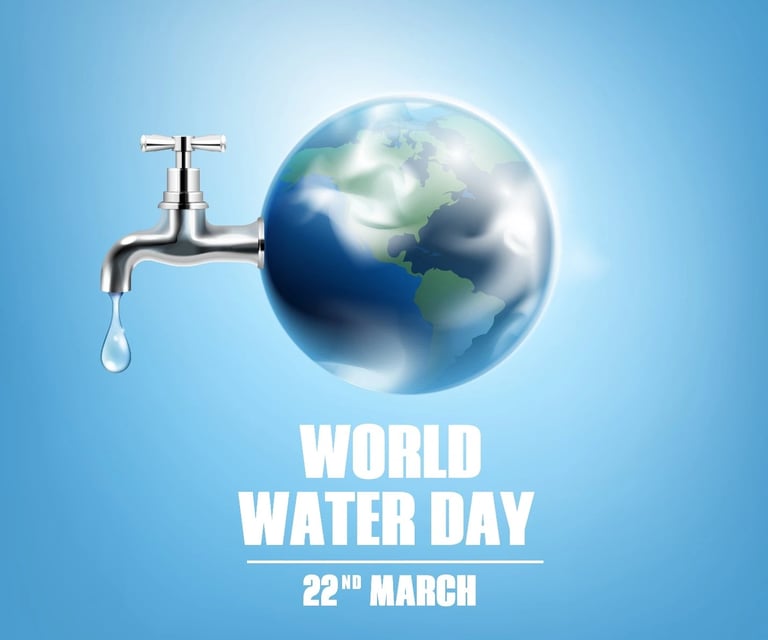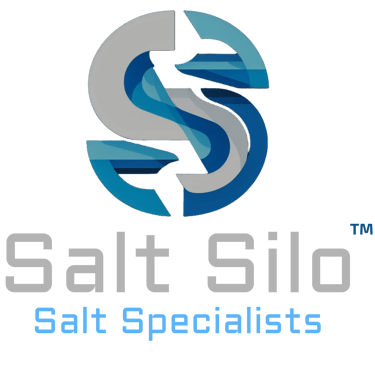World Water Day: The Role of Salt in Water Sustainability
Water is the lifeblood of our planet, essential for survival, agriculture, industry, and daily life. Every 22nd March, the world comes together to recognise World Water Day, a United Nations initiative highlighting the importance of freshwater and advocating for sustainable management of this vital resource. At Salt Silo, we know that salt plays a surprisingly crucial role in water treatment and sustainability. From ensuring safe drinking water to making industries more efficient, let’s explore how salt helps keep the world’s water flowing.
Salt and Water Purification
One of the most important applications of salt is in water softening. Hard water, rich in calcium and magnesium, causes limescale buildup in pipes, appliances, and industrial systems. Water softener salt, like our Hydrosoft tablets and granules, removes these minerals through ion exchange, extending the lifespan of plumbing systems and improving water quality for households and businesses alike.
The Impact of Using Purer Salt
Not all water softener salts are created equal. Higher-purity salt, like Hydrosoft, dissolves more efficiently, meaning fewer impurities are left behind in the softener system. This leads to:
✅ Fewer regeneration cycles – Water softeners periodically flush out minerals using a regeneration process, which consumes water. The purer the salt, the less often regeneration is needed, reducing overall water consumption.
✅ Less salt waste – Impure salts can contain additives or insoluble materials that leave behind residue, leading to more frequent system cleaning and salt waste.
✅ Improved efficiency – High-purity salt ensures the ion exchange process runs smoothly, maximising the effectiveness of each regeneration cycle and minimising unnecessary water use.
By choosing Hydrosoft salt, businesses and households can actively reduce wastewater production, lower environmental impact, and contribute to more sustainable water management.
Protecting Rivers and Diverse Ecology
Freshwater ecosystems—rivers, lakes, and wetlands—are home to some of the most diverse and fragile species on Earth. Yet, pollution, climate change, and industrial waste put these environments at risk.
💧 Excessive salt runoff from road de-icing and industrial processes can alter the delicate balance of aquatic ecosystems, harming freshwater species and plant life. Proper salt use and responsible disposal are key to protecting these waterways.
💧 Sustainable water softening helps prevent chemical buildup in rivers, ensuring clean water for wildlife and maintaining the natural biodiversity of our waterways.
The Salters’ Livery and Their Otter Symbols
The connection between salt and water conservation runs deep—even in history. The Worshipful Company of Salters, one of London’s ancient livery companies, has long been associated with salt trading, chemistry, and water quality. Their coat of arms features two otters, symbolising the importance of clean rivers and the wildlife that depends on them.
Otters are seen as guardians of water purity, a fitting reminder that preserving our rivers and using salt responsibly go hand in hand. On World Water Day, we can all take inspiration from these playful creatures and commit to protecting our freshwater environments.
Salt in Wastewater Treatment
Salt is also a key player in wastewater treatment, helping to remove heavy metals, neutralise acidic waste, and facilitate the separation of impurities. In industries like textiles, food production, and manufacturing, proper water treatment prevents pollution and protects ecosystems from harmful contaminants.
Desalination: Turning Saltwater into Freshwater
With nearly 97% of Earth’s water locked in oceans, desalination—removing salt from seawater—is becoming an essential solution in water-scarce regions. While the process is energy-intensive, innovations in salt-based filtration and brine management are making desalination more sustainable.
Protecting Our Water Resources
This World Water Day, the theme is "Water for Peace", emphasising how access to clean water can prevent conflicts and promote cooperation. At Salt Silo, we believe businesses and individuals alike have a role to play in responsible water use:
✅ Reduce water waste – Fix leaks, install water-efficient appliances, and reuse water where possible.
✅ Choose the right salt – High-purity water softener salt reduces waste, improves efficiency, and conserves water.
✅ Support sustainable practices – Whether at home or in industry, mindful salt use can help preserve water quality.
Final Thoughts
Salt and water are deeply connected. Whether it’s in purification, industrial processes, or conservation, salt helps shape the way we use and manage water worldwide. On this World Water Day, let’s commit to making responsible choices that ensure clean, accessible water for future generations.
🔹 Want to learn more about how Hydrosoft salt improves water efficiency? Explore our range of water softening salts here.
Spread the Word! Spread the Salt! 🌍💧


